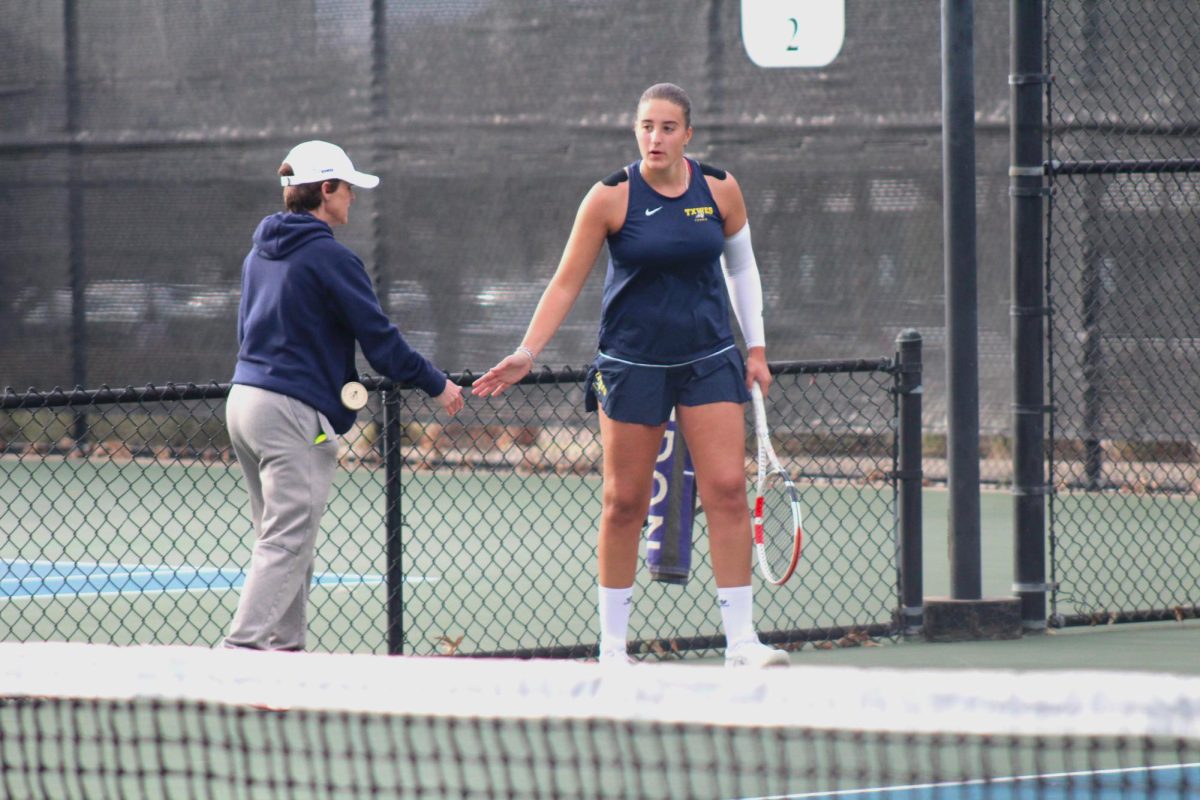
Raul Montes is a table tennis athlete, Biology major, Chemistry minor, current RA for Stella Russell Hall and a volunteer for the Food Pantry. He is also an advocate for international students.
In March 2020, international students were hit hard by the pandemic. Raul Montes, an international student, table tennis athlete, and current RA for Stella Russell Hall speaks out about his experience in the pandemic.
“It was not the greatest situation, so I was forced to go home,” said Montes.
He was forced to go back to Spain because he did not have a support system on campus, a car or a means to purchase necessary expenses such as food. Luckily, he was able to adapt to his online classes as he had a good internet connection in Spain.
Montes recognized that other international peers, who were also forced to leave to their hometowns, were not as lucky as him since they faced internet problems during classes.
An even bigger problem, mentioned Montes, was that foreign students did not know what would happen to their student visa status. According to Montes, international students who felt the need to leave campus during that time were not allowed to return unless they were taking face-to-face classes.
The U.S. government proposed several regulations during that time, and many international students he knew did not know if they could return or get an extension to work after graduation.
Other international students like Aurora Novati, a junior, table tennis athlete and business management major, faced a different problem when she went back to Como, a city in Northern Italy. She says that she was scared of not being able to travel back to the United States since a travel ban policy was issued between Europe and the United States.
She was scared about the travel ban because she did not want to lose one semester at Texas Wesleyan. “It’s very expensive basically paying for tuition for not even having the full experience,” said Novati.
Luckily for Novati, she has her teammates’ support as they drive together to purchase basic utilities. She confessed that paying for public transportation would have been expensive for her.
According to Caitlin Dickerson, writer for The New York Times, “a substantial number of international students [were] watching their financial lives fall apart” as many of them were not allowed to work on campuses if these closed.
Montes acknowledged that his recent pandemic experience is not nearly as bad as when it first hit since he has used valuable resources around campus. Although he still does not have a car, he relies on his friends for transportation. He agrees that paying for Uber or other public transportation is expensive.
Also, to save money, he frequently uses the food pantry and is often asking questions at the International Students Office. Montes is also part of an international student community on Facebook, a community where he has met other peers from abroad who attend Texas Wesleyan University.
Besides recommending his international peers to frequently use the Food Pantry, visit the International Students Office and use their healthcare insurance for doctor visits, he advised them to rely on each other for support and inform each other about new updates on the embassy website.
Montes said that he has a friend from Italy whom he talks to about government policies regarding the pandemic and their visa status. He recognized that the “more people that are involved in coping with an issue, the better.”
“Unfortunately, those are the mere resources; it’s more like relying on someone, asking questions,” said Montes. He said that the resources are scarce, as it takes people to be interested in knowing more about international students and their needs.
Regardless of the hardships that many international students have faced during the pandemic, Montes is happy to know that there is a strong community of international students on campus who are willing to support one another.









![Pippin, played by Hunter Heart, leads a musical number in the second act of the musical. [Photo courtesy Kris Ikejiri]](https://therambler.org/wp-content/uploads/2025/04/Pippin-Review-1200x800.jpg)
![Harriet and Warren, played by Trinity Chenault and Trent Cole, embrace in a hug [Photo courtesy Lauren Hunt]](https://therambler.org/wp-content/uploads/2025/02/lettersfromthelibrary_01-1200x800.jpg)
![Samantha Barragan celebrates following victory in a bout. [Photo courtesy Tu Pha]](https://therambler.org/wp-content/uploads/2025/05/20250504_164435000_iOS-834x1200.jpg)





![Hunter Heart (center), the play's lead, rehearses a scene alongside other student actors. [Photo courtesy Jacob Sanchez]](https://therambler.org/wp-content/uploads/2025/04/thumbnail_IMG_8412-1200x816.jpg)
![Student actors rehearse for Pippin, Theatre Wesleyan's upcoming musical. [Photo courtesy Jacob Rivera-Sanchez]](https://therambler.org/wp-content/uploads/2025/04/Pippin-Preview-1200x739.jpg)
![[Photo courtesy Brooklyn Rowe]](https://therambler.org/wp-content/uploads/2025/05/CMYK_Shaiza_4227-1080x1200.jpg)

![Lady Rams softball wraps up weekend against Nelson Lions with a victory [6 – 1]](https://therambler.org/wp-content/uploads/2025/04/Screenshot-2025-04-04-100924-1200x647.png)
















![The Texas Wesleyan University women's golf team walks the course. [Photo courtesy of Corrina Griffin]](https://therambler.org/wp-content/uploads/2025/04/rounds-902x1200.jpg)
